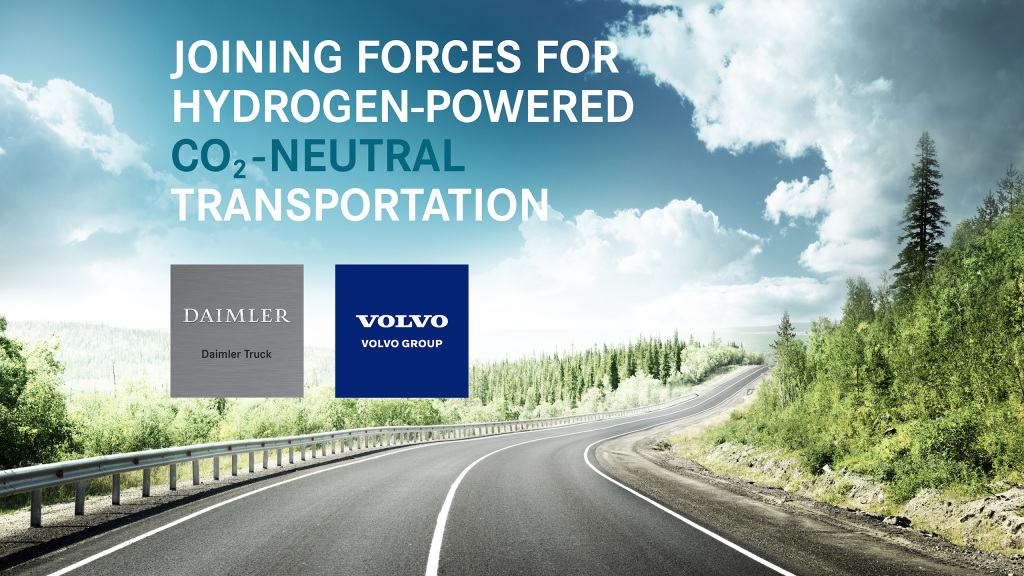Two fierce competitors are working together on a solution to developing hydrogen fuel cell for use in heavy-duty truck applications. Volvo Trucks and Daimler Truck (Mercedes-Benz parent company) have started the process into putting together a joint venture where Volvo will buy 50% of the shares in Daimler’s existing fuel cell activities for EUR 0.6 billion on a cash and debt free basis.

The company is no newcomer to fuel cell technology, Daimler has been working on fuel cells for around twenty years
Martin Daum, Chairman of the Board of Management Daimler Truck AG said:
“Truly CO2-neutral transport can be accomplished through electric drive trains with energy coming either from batteries or by converting hydrogen on board into electricity. For trucks to cope with heavy loads and long distances, fuel cells are one important answer. This joint initiative with the Volvo Group is a milestone in bringing fuel cell powered trucks and buses onto our roads.
Martin Lundstedt, Volvo Group President and CEO said:
“By forming this joint venture, we are clearly showing that we believe in hydrogen fuel cells for commercial vehicles. But for this vision to become reality, other companies and institutions also need to support and contribute to this development, not least in order to establish the fuel infrastructure needed.

Chinese Walls
Whilst Volvo Trucks and Daimler Truck will be 50/50 partners in the joint venture, the two business will continue to compete in all other areas. The standalone company has been put in place to ensure this. Joining forces means reduced R&D costs plus the potential for bringing products to the market faster.
The Future
The aim of the joint venture should result in both truck makers making Fuel Cell trucks available for sale sometime after 2025. The independent company can market their technology elsewhere and may become a successful business in its own right.
The joint venture will include the operations in Nabern/Germany (currently headquarters of the Mercedes-Benz Fuel Cell GmbH) with production facilities in Germany and Canada.
The signed preliminary agreement is non-binding. A final agreement is expected by Q3 and closing before year-end 2020. All potential transactions are subject to examination and approval by the responsible competition authorities.
